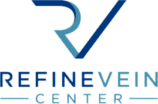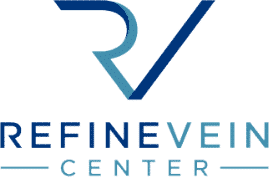Vein health can be easy to overlook, at least until symptoms like aching legs, visible veins, swelling, or heaviness begin to affect your comfort and daily life. At Refine Vein Center, we believe in both proactive prevention and effective treatments. Alongside medical care, there are several simple habits that, when performed consistently, can make a huge difference in keeping veins happy and reducing risk of varicose veins, spider veins, and chronic venous insufficiency.
Here are eight daily habits you can adopt now to support your vein health, feel better, and potentially avoid more intensive treatments later on.
1. Get Moving: Walking and Light Activity
Prolonged sitting or standing puts additional strain on your veins, especially in your legs. Incorporating frequent movement like short walks, light stretching, or leg lifts, helps blood flow back toward the heart. Strive for 5–10 minutes of movement every hour when you’ve been stationary, and try to include at least one longer walk (20–30 minutes) every day.
2. Hydrate Well
Drinking enough water keeps your blood from becoming too thick, which makes the job of your veins much easier. Staying hydrated supports circulation and helps reduce swelling. Aim for water intake based on your body size, climate, and activity level.
3. Elevate Your Legs
Whenever possible after a long day, raise your legs above the level of your heart for around 10 to 15 minutes. This reduces pressure in the veins, helps fluid drain, and eases discomfort or swelling. It’s one of the simplest habits with one of the strongest impacts.
4. Wear Compression Stockings When Needed
Compression stockings can help maintain healthy blood flow, prevent pooling, and relieve heaviness or aching. If you notice symptoms like leg swelling, restless legs, or visible varicose veins, they might be a good option. Talk with Dr. Reynolds at Refine Vein Center to see whether compression is right for you.
5. Maintain a Healthy Weight
Extra weight increases pressure on your veins, especially in the legs and pelvis. Losing even a modest amount of weight (if you’re overweight) can reduce strain, improve symptoms, and lower risk of developing varicose veins. Pair healthy eating with regular movement.
6. Prioritize Leg-Friendly Rest and Care
Simple self-care at home, including gentle leg massages and avoiding heat for extended periods (like very hot baths) can reduce inflammation and swelling. If you’ve been on your feet a lot, sitting with legs up, applying cold compress, and giving your legs rest can help recovery.
7. Eat Foods That Promote Good Circulation
A diet rich in fiber, antioxidants, and healthy fats supports blood vessel integrity. Think fruits and vegetables (berries, citrus, leafy greens), whole grains, nuts, and fish. Reduce high sodium intake, which can contribute to water retention and swelling. Staying mindful of your diet supports both vein function and overall vascular health.
8. Regular Checkups and Early Attention to Symptoms
Even with a healthy lifestyle, some people are predisposed to vein disease (due to family history, pregnancy, age, etc.). If you experience heaviness, aching, visible varicose veins, spider veins, swelling, skin discoloration, or restless legs, getting an early evaluation can prevent progression.
Why These Habits Matter
Veins have to work harder when blood flow is sluggish, pressure is high, or when lifestyle adds stress. Over time, that extra work can lead to changes in the vein walls or valves, resulting in varicosities or even chronic venous insufficiency. By building supportive daily habits, you reduce that burden. These measures aren’t “one-and-done” fixes; they’re ongoing lifestyle choices that help maintain vein health.
When to Consult Refine Vein Center
If you’ve tried lifestyle remedies and still experience discomfort, visible veins that bother you, swelling, skin changes, or other symptoms, don’t wait. Refine Vein Center offers comprehensive care, minimally invasive treatments, and personalized treatment plans to address both the medical and cosmetic aspects of vein disease.
Schedule a consultation with our board-certified physician, Dr. Avery Reynolds, to get a full assessment and find the best path forward. Prevention plus professional guidance is the ideal combination.
Final Thoughts
Maintaining vein health doesn’t require complex interventions. These daily habits can all play a role in keeping veins functioning well. When paired with proactive care and medical expertise, they help you avoid discomfort and maintain healthier legs.
If you’d like help creating a plan tailored to your lifestyle or are noticing signs that something more serious might be going on, reach out to Refine Vein Center today.



